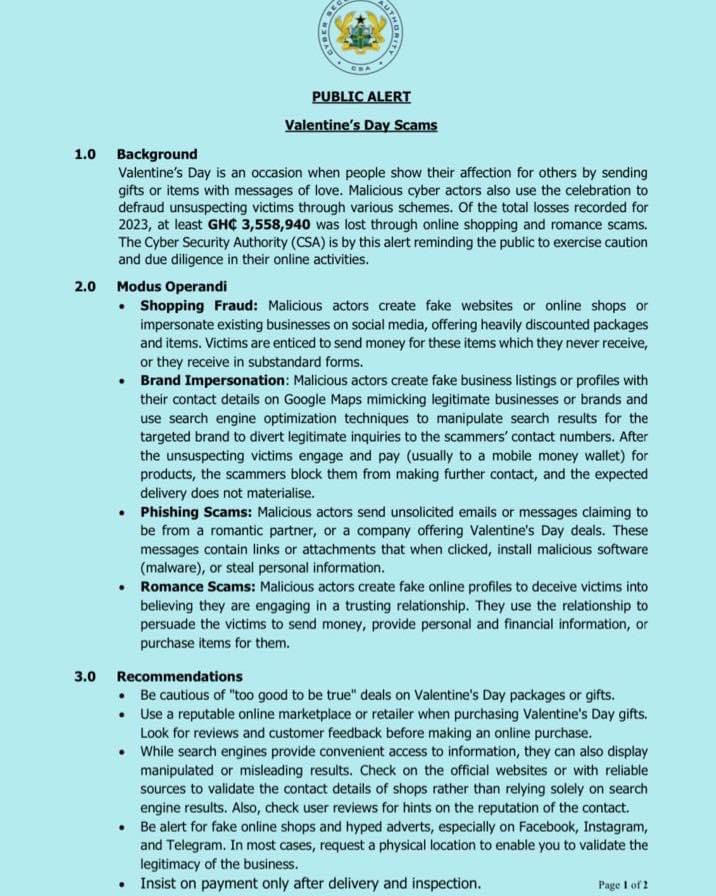
Two Ghanaian women have been rescued following their involvement in a romance scam that resulted in their abduction in Nigeria, a case that has alarmed the public and prompted joint investigations by security forces in both Ghana and Nigeria.
The victims, Anastasia Baidoo Arthur and Evelyn Konadu, were deceived into travelling to Nigeria after receiving fraudulent marriage proposals from individuals posing as white foreign nationals.
Upon arrival, they were kidnapped and subjected to violent abuse.
During a press conference on Tuesday, the Director General of the Criminal Investigations Department (CID), DCOP Lydia Yaako Donkor, outlined how the women were manipulated by an online criminal network using false identities.
These suspects met the two victims, Anastasia Baidoo Arthur and Evelyn Konadu, through their Facebook accounts. The suspects posed as white men who wanted to marry the victims. The two unsuspecting victims became convinced and accepted the marriage proposals
MUST READ: Suspected thief demonstrates how he broke into a mobile money shop to steal [video]
How the two women landed in Nigeria
The women travelled separately but arrived on the same day, April 22, 2025, at a predetermined location in Port Harcourt, Nigeria, where they were immediately taken captive.
Police investigations revealed that the perpetrators Peter Okoye, 31; Paulinus Chidokwe, 35; Chinoso Okafor, 35; and Christian Emeka, were responsible for the abduction.
Okoye and Emeka, both Nigerians with previous connections to Ghana, had been associated with QNET operations in the country before relocating back to Nigeria.
Emeka later returned to Ghana in 2024 prior to the execution of the kidnapping scheme.
DCOP Donkor emphasised that the group was part of a larger syndicate specialising in romance scams across Ghana and Nigeria.
READ ALSO: Football dream ends in tragedy as 14-year-old Senegalese star dies in France
Peter Okoye, Christian Emeka, and Basil Okonkwo, all Nigerians, were involved in romance scams in Nigeria and Ghana
Following the abduction, the victims endured severe mistreatment. They were stripped, bound, and assaulted with machetes.
The kidnappers also threatened to kill them, wrapping them in bedsheets, covering their heads with black plastic bags, and warning that they would be hanged using nylon ropes.
DCOP Donkor disclosed that the brutal acts were recorded and shared on social media, with copies sent to the victims’ families alongside ransom demands of GH?500,000 per victim.
Videos of the torture were shared widely on social media and used as a tool to extort families
Before the arrests, GH?18,000 had already been transferred via mobile money to accounts linked to the suspects.
Through coordinated efforts involving Ghana’s National Signals Bureau (NSB) and the Nigeria Police Force, the victims were successfully rescued, and eight suspects were apprehended in hideouts across both countries.
The Ghana Police Service is collaborating closely with Nigerian authorities to expedite the return of the two victims and suspects back to Ghana
READ MORE: Illegal miners take galamsey into homes amid government forest crackdown [Video]
As of today, both suspects and victims are with the Nigerian authorities, and efforts are being made to transport the victims to Ghana.
She further noted that the suspects would be extradited to Ghana to aid in ongoing investigations.
Ghana Police brief public on recent kidnapping incident involving two Ghanaian women in Nigeria.
— EDHUB????? (@eddie_wrt) May 6, 2025
According to the Police, the victims were lured to Nigeria through a romance scam. Two Nigerian suspects had created a fake Facebook account, posing as a white man, and promised… pic.twitter.com/HXUMVRSrIz
Caution to the general public
Authorities have warned the public to remain cautious of online romance scams and encouraged reporting any suspicious activities to law enforcement.
This harrowing incident has reignited calls for increased vigilance in digital interactions and stronger cross-border cooperation among security agencies to combat cyber-enabled crimes.
Read Full Story













Facebook
Twitter
Pinterest
Instagram
Google+
YouTube
LinkedIn
RSS